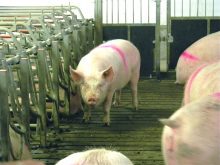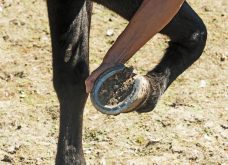Canadian food processor Maple Leaf Foods reported a disappointing quarterly loss on July 31, hurt by weak returns on raising pigs.
North American hog farmers have been hard pressed to survive losses in the past year, due to at-times soaring costs of corn and wheat tied to last year’s U.S. drought, and weak pig prices. Maple Leaf and its privately held Canadian rival Olymel, each bought large corporate hog farms to secure future supplies.
“They’ve got a lot more pigs there that are losing money,” said Robert Gibson, analyst at Octagon Capital.
Read Also

Smart deworming for sheep starts with individual fecal egg counts
Fecal egg count tests are one step to managing dewormer resistance and managing sheep parasites on Canadian sheep farms to maintain flock health.
Maple Leaf chief executive Michael McCain cited hog production returns as one of the key reasons for the company’s year-over-year decline. The weak results follow a disappointing first quarter, when the company also posted a surprising loss tied to high feed costs and lower meat sales.
Net earnings for the second quarter fell to nil, or a loss of two cents a share, from a profit of $26 million, or 17 Canadian cents, a year before. Sales of $1.214 billion were down 3.7 per cent.
Maple Leaf’s protein group, which includes both its meat products and agribusiness units, posted a $9.8-million adjusted operating loss in the quarter, down from year-ago adjusted operating earnings of $33.4 million. Adjusted operating earnings are a non-IFRS (International Financial Reporting Standards) measure used by Maple Leaf.
Its bakery group was a bright spot, with adjusted operating earnings rising nearly five per cent year over year to $32.7 million.
Toronto-based Maple Leaf is carrying out a $560-million multi-year program to upgrade its meat operations as it seeks to boost profits and better compete with U.S. rivals.
Maple Leaf shares climbed about 15 per cent as of the July 30 close since around mid-June, when news emerged that U.S. rival Smithfield Foods had inquired earlier about buying the company, stoking ideas that Maple Leaf may still be a takeover target.
Instead, China’s Shuanghui International Holdings agreed to buy Smithfield for $4.7 billion.


















